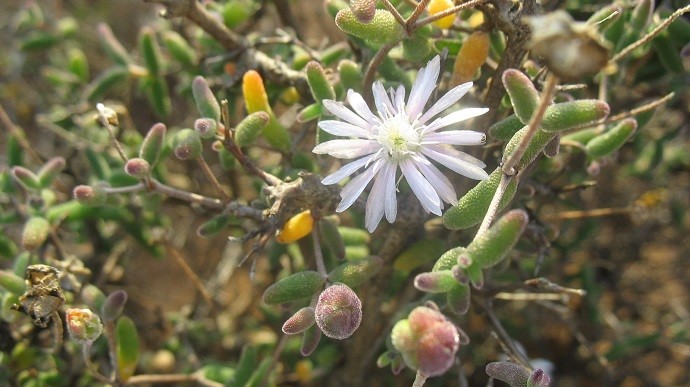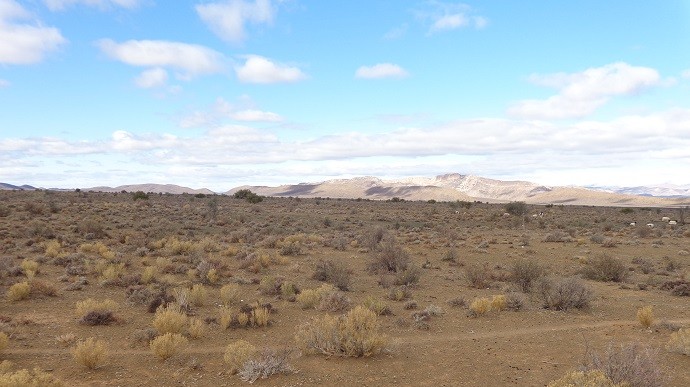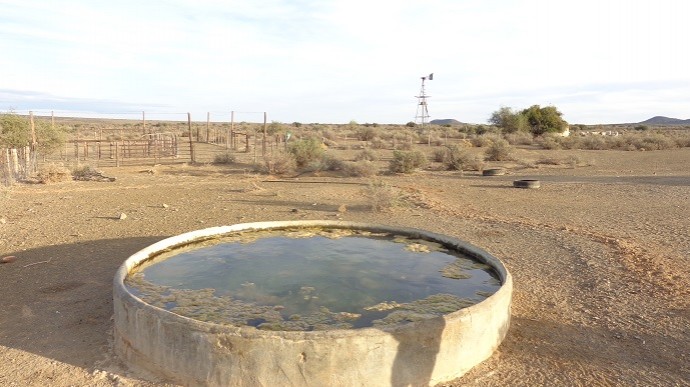 Story
Story
The articles in this edition showcase work from all nine of our faculties, and underscore our University’s slogan ‘Make today matter’. RE.SEARCH has been named South Africa's top corporate publication as the winner of the 2024 SA Publication's Forum Awards. It is a runner up and finalist in the Excellence category for Communication (runner up), Design and Photography (finalist) and the...
 Story
Story
Over the past two decades, field trips in search of dung beetles have taken University of Pretoria (UP) doctoral student Christian Deschodt across Southern Africa. But it was a well-trodden walk to fetch his kids from school, a mere 1,5km from his home near Hartbeespoort, that saw him stumble upon an entirely new species.
 Gallery
Gallery
In another paper, Deschodt described yet another new species. Onthophagus pragtig most likely only feeds on the innards of dead millipedes. It is one of 20 species that is part of a small group of dung beetles in the genus Onthophagus. All other species in this group are known to prefer feeding on the soft internal organs (or viscera) of dead millipedes.
 Infographic
Infographic
Dung beetles likely date back to Africa some 40 million years ago. They then spread across the world, except to Antarctica. Most dung beetles feed on dung. They lay their eggs in dung balls that are buried underground so that their developing larvae have enough food and easy access to it. Their digging helps to nourish and loosen the soil, and improves its water-holding capacity.
 Lecture
Lecture
Molecular techniques have revolutionised horse management and health and have provided practical solutions to complex problems in the various horse disciplines internationally. Molecular-based parentage verification systems were standardised internationally in the 1990s and are now widely applied in most horse breeds. These systems now include tests for genetic diseases and performance traits....
 Story
Story
The University of Pretoria (UP) has been part of a groundbreaking international study to understand how plants found in drylands have adapted to these extreme habitats. The results of this large-scale study, which involved 120 scientists from 27 countries, were recently published in scientific journal Nature and have significant implications for protecting biodiversity as the planet warms and...
 Gallery
Gallery
UP researchers contributed datasets from South African drylands, with sampling being carried out in the vicinities of Graaff Reinet and Prince Albert in the central Karoo, and around Lichtenburg in the North-West province. These sites provided unique data as South Africa’s drylands are particularly rich in plant species compared with many of the other sites included in the study.
 Podcast
Podcast
Listen to the Nature podcast where a round up of the UP and partners study is mentioned explaining what happens when environments get more dry and plant species numbers drop, but the number of traits increase and the global significance of this research.
 Lecture
Lecture
Artificial Intelligence has had a major impact in the fourth industrial revolution and has been instrumental in finding scalable solutions to complex problems posed by the United Nations Sustainable Development goals. However, this has not been without challenges. As the adoption of artificial intelligence has grown, we find ourselves in the situation where artificial intelligence has moved out...
Copyright © University of Pretoria 2025. All rights reserved.
Get Social With Us
Download the UP Mobile App